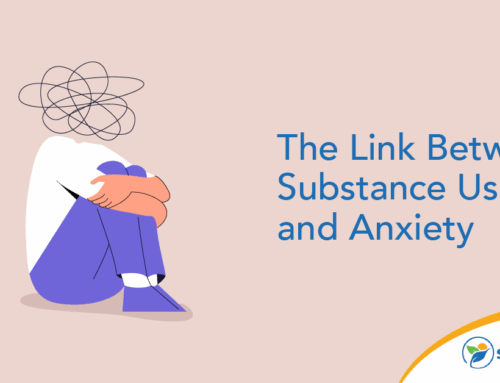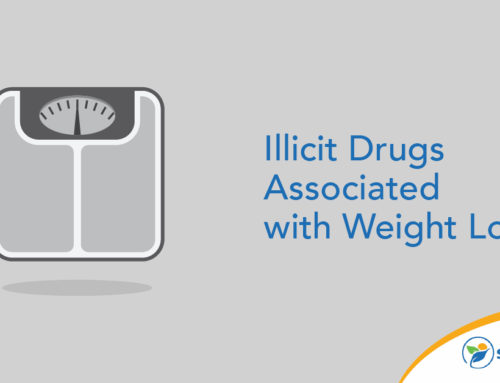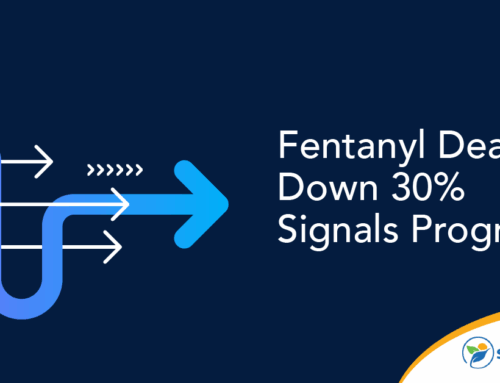While there is such a thing as a toxic dose of cannabidiol or CBD, taking too much CBD is not life-threatening. In fact, studies show humans can safely tolerate up to 1,500 mg of CBD per day. So even if you took a toxic dose of 20,000 mg of CBD in a day, your worst symptoms would include extreme drowsiness, lethargy, upset stomach, nausea, diarrhea and other disorienting side effects. This means that even if your dog ate your CBD medication, your pet will likely be all right.
Although further research is needed to fully understand the benefits and drawbacks of long-term CBD use, the World Health Organization reported in 2017 that “in its pure state, cannabidiol does not appear to have abuse potential or cause harm.” Read on to learn more about how CBD affects the body and when it may be wise to seek medical attention.
How CBD Affects the Body
CBD is one of the main chemical compounds found in the cannabis plant. Unlike THC, CBD is not psychoactive, which means it doesn’t produce the “high” feeling that’s typically associated with ingesting cannabis products.
Instead, CBD binds with the body’s TRPV1 receptors, helping relieve pain and inflammation. In fact, cannabinoid preparations are now being prescribed to treat a wide range of ailments, including chemotherapy-induced nausea, epilepsy and chronic pain. This is thanks to the substance’s anticonvulsant, neuroprotective, anti-inflammatory and analgesic effects.
Does Taking CBD Help With Anxiety?
In addition to helping relieve pain and seizures, CBD also binds to several receptors known to regulate behaviors associated with fear and anxiety in humans and animals. Researchers don’t yet fully understand how cannabidiol affects the nervous system, but it seems that by interacting with CB1 and CB2 receptors in the brain, CBD affects the body’s serotonin signals. This helps relieve anxiety and induce a sense of well-being.
According to a study carried out in 2018, 300 mg of CBD was enough to reduce the anxiety of male study participants who were being subjected to a public speaking test. Conversely, participants who received just 150 mg of CBD experienced little benefit. Interestingly enough, those who were given a higher dose of 600 mg of CBD also saw no reduction in their anxiety levels. In other words, CBD can help with anxiety — but only when taken in the right amounts.
What to Do If Your Dog Ate CBD: CBD and Pets
While no formal studies have been done on how effective CBD is at treating anxiety in dogs, research shows that CBD products are safe for dogs. As a result, many dog owners have turned to this solution in an attempt to reduce their pets’ issues with anxiety.
According to this calculator, you should take 1 to 6 mg of CBD per 10 pounds of body weight, depending on the effects you’re after (low, medium or high strength). From this perspective, a 20-pound dog will be able to tolerate a much lower amount of CBD than a 90-pound dog. The body weight calculator can be a good way to figure out how much CBD you can safely give an anxious pet. The problem with giving CBD to your pet, though, is that it can’t tell you how it’s feeling. For this reason, it’s best to start with a low amount and monitor carefully to see how it reacts.
If your dog ate some CBD without your knowledge and you’re worried about what might happen, the first step is to remain calm. Depending on how much it’s taken, it may not act differently or feel anything at all. If it’s taken too much, it might be a little lethargic or experience an upset stomach and some diarrhea, but since CBD doesn’t affect the areas of the brain responsible for breathing, taking too much CBD won’t be fatal for your dog.
CBD and Children
The effects of CBD in children are still being studied, and you definitely shouldn’t medicate your child with CBD unless you’ve been advised to do so by your doctor. Although CBD is considered relatively safe, researchers believe it could cause liver injury in users of any age, and it could affect brain development in children.
The way CBD acts on the brain may help control seizures caused by various afflictions, including epilepsy. It may also be beneficial for certain autism symptoms. However, more research is needed to show whether CBD is safe for children.
What to Do If You Take Too Much CBD
Overdosing on CBD is extremely unlikely (the average CBD gummy typically contains between 10 and 30 mg of cannabidiol). And even if a person managed to ingest a toxic dose of CBD in a day, the most common symptoms they could expect to feel are headache and some fatigue. Unless you take a CBD product that also contains THC, taking too much CBD will never make you feel high.
In order to overdose on CBD, you’d have to take nearly 20,000 mg of the substance. That being said, there could be circumstances where you took CBD without meaning to or without knowing how much you were taking.
If you feel ill because of CBD toxicity, don’t be afraid to call poison control! CBD is a legal compound, so there’s no reason to feel ashamed or worry about legal consequences or judgment from the medical professional who answers your call. Calling poison control because you took too much CBD is no different than calling because you ingested soap or another household product.
How Long Do the Effects of CBD Take to Wear Off?
According to Discover Magazine, the effects of CBD tinctures usually take about an hour to take effect and last anywhere from 2 to 8 hours. How long the effects of CBD take to wear off will of course depend on how much you took, your tolerance level, your sex and your body weight.
Researchers are becoming increasingly interested in CBD’s potential to alleviate the symptoms of common health problems in adults such as anxiety, depression, seizures, pain and nausea. That being said, not that much is known about CBD toxicity in children and pets. Although CBD is generally thought of as a safe way to manage pain and anxiety, it’s always a good idea to talk to your doctor before you begin any treatment.







